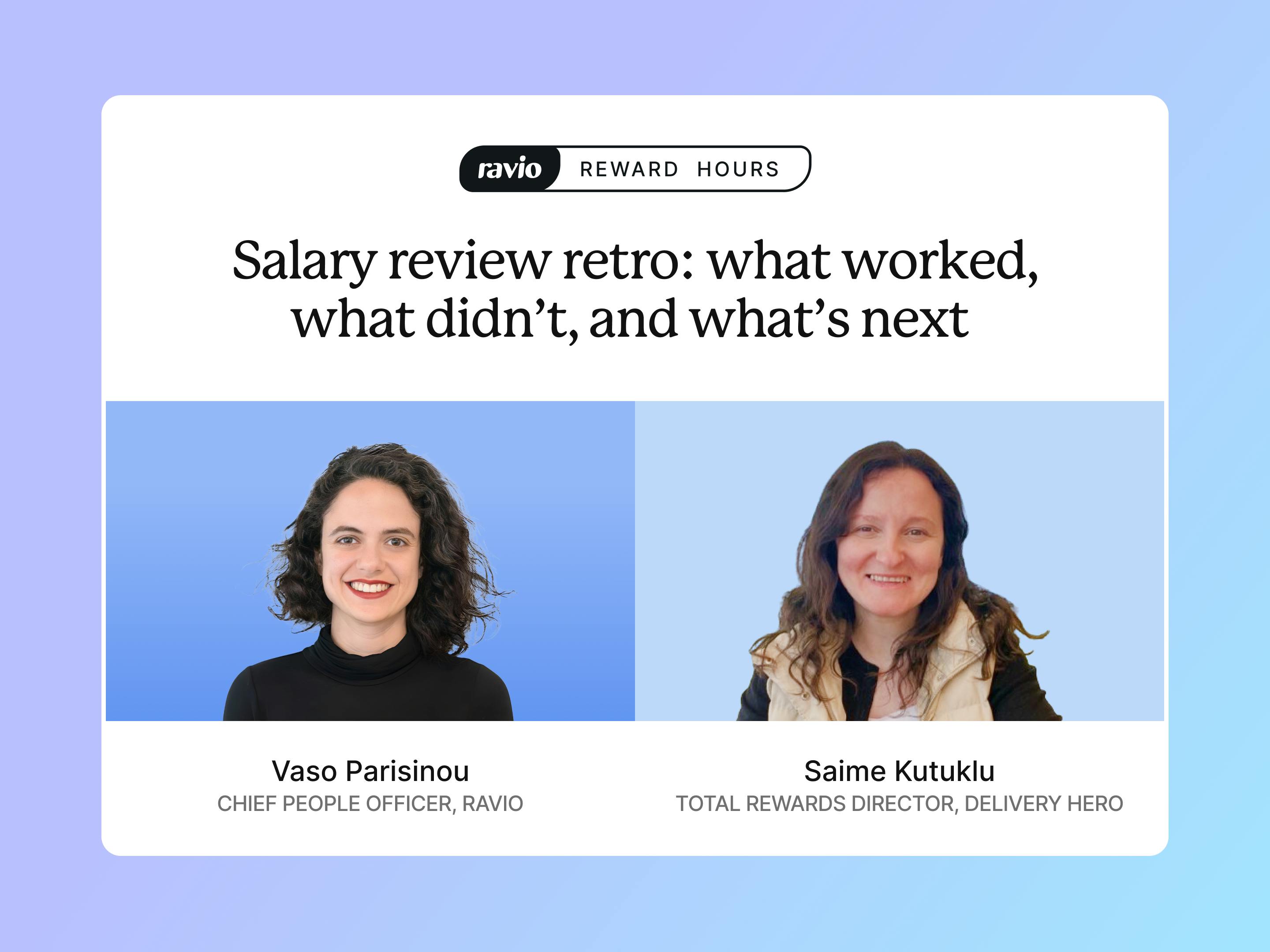Performance review season arrives, managers scramble to remember what their direct reports accomplished six months ago, and employees are left receiving performance ratings that feel disconnected from their daily reality.
Isha Smith, Global VP of Total Rewards at SoundCloud, knew this cycle was the opposite of what they needed from effective performance management. These backward-looking ratings are common, but implemented wrongly they can cause real damage to employee engagement.
Her solution was to remove ratings entirely, and instead build a performance management system based on continuous feedback and personalised growth opportunities.

How the 3-point rating scale undermines effective performance management
One of the most common methods of performance management is a 3-point rating scale, where each employee is evaluated against three performance ratings: needs improvement, meets expectations, exceeds expectations.
"The bulk of the organisation typically falls in the middle category of 'meeting expectations'", Isha highlights. "With so few ratings this is inevitable, because you have to reserve the top and bottom ratings for the highest and lowest performers."
Receiving a 'meeting expectations' review isn't inherently negative, but it can feel like it for ambitious, high-potential employees who are craving meaningful feedback and growth opportunities.
"It's typical for this evaluation to happen only once or twice a year," Isha explains, "and it's really common for the rating to be poorly communicated.”
“In a lot of cases managers don't have time for an in-depth discussion to add real colour to the picture, so the message is just 'hey, you got a level 2'."
This can quickly devolve into frustrated employees who are always being put in the same bucket, don’t understand why, and can't see a progression pathway for them at the company.
That means it's actually damaging to employee engagement and retention goals rather than supporting effective performance management.

Building performance management around continuous feedback
When Isha was faced with this problem at SoundCloud, her team took the approach of re-building from scratch, rather than trying to fix a broken performance ratings system.
One of the boldest moves was eliminating ratings altogether.
3-point rating scale systems have often been seen evaluate employee performance, but in reality the opposite can easily be true.
"Performance ratings can be more discriminatory than other approaches," Isha highlights.
"Human bias is always a factor, especially if applied differently across different teams. It can easily allow some pockets of employee groups to flourish better than other pockets."
Instead of forcing employees into predetermined categories, Isha's system focuses on individual growth and contribution within a clear, company-wide framework built around continuous feedback.
A new 'Talent Framework' was introduced around three core pillars that aimed to address what their team members actually wanted to see from performance management.
Overall, this framework aims to provide:
- Clear connection between individual work and company success
- Continuous feedback instead of annual, no-context performance ratings
- Structured growth opportunities rather than vague development promises.
Subscribe to our newsletter for monthly insights from Ravio's compensation dataset and network of Rewards experts 📩
Pillar 1: Goals – connecting individual work to company impact
"In Q1 we now build the cascading goals for the year," Isha says, "we start at the very top with the executive team sharing company-wide goals and the priorities that everyone should be working towards."
From there, each team is able to build team-level and individual-level goals which align with those overarching priorities – ensuring employees have a strong understanding of why their work matters, and where they can meaningfully increase their impact.
"Say we have a top-level business goal to grow subscriptions to the platform, for instance," Isha explains, "I might then identify that my Rewards team needs to focus on how we can better incentivise our sales team to ensure we meet those targets."
Pillar 2: Growth – structured development opportunities
The second pillar addresses the hunger for personal development and growth opportunities that Isha was seeing through feedback from the team.
"Growth week happens in Q3, which is an opportunity to be very focused on feedback to support an individual's growth," Isha explains.
Growth week is an opportunity for all employees to identify growth opportunities, not just individual contributors or team members in the early stages of their career.
"Managers, by the way, also need to grow! So we've made upward feedback mandatory during growth week too."
Of course, employee growth and development is directly connected to pay progression and promotion opportunities – so this clarity on development helps to connect the dots between performance conversations and what it means for employee compensation too.
Pillar 3: Continuous feedback – no more annual surprises
Perhaps most importantly, the new system eliminates the dreaded annual cycle for performance ratings that leaves employees wondering where they stand throughout the rest of the year.
"We introduced a principle of ongoing feedback throughout the year, so no more once-a-year performance conversations," Isha explains.
"The aim is to have a culture where there are no surprises when it comes to feedback, and it becomes something that employees don't need to feel anxious about. Instead, everyone knows exactly where they are at any given point in the year."
Soundcloud is far from alone in this employee feedback of surprise and disappointment about performance ratings – it's something that many companies seem to struggle with during the performance and compensation review cycle.
For instance, when we spoke to Rob Green and Figen Zaim about challenges with pay for performance models, both cited how a one-off annual review process can compound issues with short-term thinking and the stress of the process.
“The worst thing you can do is to wait for a whole year, and then tell an employee that they’re way off where they need to be to receive a pay increase or promotion," explains Figen Zaim, Founder of Olivier Reward Consulting.
And her advice? To focus on continuous feedback, just like Isha has been doing at Soundcloud: "Don’t wait to give feedback (whether positive or negative) until the allotted time, do it now," says Figen.
Rob Green, Founder of Darwin Total Rewards shared very similar advice too. “There’s nothing worse than surprises on pay and performance, as employees lose confidence and trust in the process and leadership," he says, with his recommendation being for People and Reward teams to spend significant time and effort "cultivating a culture of feedback and growth between managers and direct reports all year round."
The importance of ensuring that performance and compensation are a continuous conversation rather than a one-off event is clear.
In summary: performance management should be a driver for employee engagement
Isha's approach at SoundCloud demonstrates that performance management can (and should!) be a powerful tool for engaging employees – but it has to be designed around what they actually value, instead of defaulting to standardised performance ratings systems.
Effective performance management provides the clarity, growth opportunities, and regular communication that employees are looking for, in support of those all-important engagement and retention goals.



